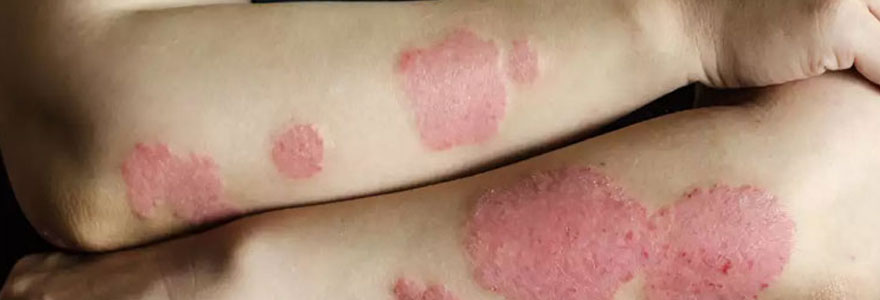
Dr. Amrita Khatri
M.D., B.H.M.S.Book Appointment
Psoriasis

Psoriasis is a chronic autoimmune skin disorder characterized by the rapid buildup of skin cells, leading to the formation of thick, scaly, and often itchy patches or plaques on the skin. It is a common condition that can affect people of all ages, and while it primarily involves the skin, it can also have systemic effects on other parts of the body.
Symptoms of Psoriasis
- Red Patches of Skin: Raised, red patches covered with thick, silvery scales, often found on the scalp, elbows, knees, and lower back.
- Dry, Cracked Skin: Skin that appears dry and cracked, sometimes bleeding.
- Itching and Discomfort: Itching or burning sensations in the affected areas.
- Nail Changes: Changes in the nails, such as pitting, ridges, or discoloration, and sometimes separation of the nail from the nail bed.
- Thickened Skin: Thickened patches of skin, also known as plaques, which can be rough to the touch.
- Scalp Issues: Itchy, flaky scalp with dandruff-like flakes or more severe scales.
- Joint Pain: In some cases, psoriasis can be associated with psoriatic arthritis, leading to joint pain, stiffness, and swelling.
Causes of Psoriasis
- Genetics: A family history of psoriasis can increase the likelihood of developing the condition, suggesting a genetic predisposition.
- Immune System Dysfunction: Psoriasis is an autoimmune disorder where the immune system mistakenly attacks healthy skin cells, leading to rapid skin cell turnover and the formation of plaques.
- Environmental Triggers: Certain environmental factors can trigger or exacerbate psoriasis, including infections, stress, injury to the skin, and exposure to certain chemicals or medications.
- Infections: Bacterial or viral infections, such as strep throat, can trigger psoriasis in some individuals.
- Stress: Emotional or physical stress can trigger or worsen psoriasis outbreaks.
- Skin Injuries: Trauma to the skin, such as cuts, scrapes, or sunburn, can trigger the development of psoriasis plaques.
- Medications: Certain medications, such as lithium, antimalarials, and beta-blockers, may worsen psoriasis or trigger flare-ups.
- Alcohol and Smoking: Excessive alcohol consumption and smoking can increase the risk of developing psoriasis or worsen existing symptoms.
- Hormonal Changes: Hormonal changes, such as those occurring during puberty or pregnancy, can influence the onset and severity of psoriasis.


